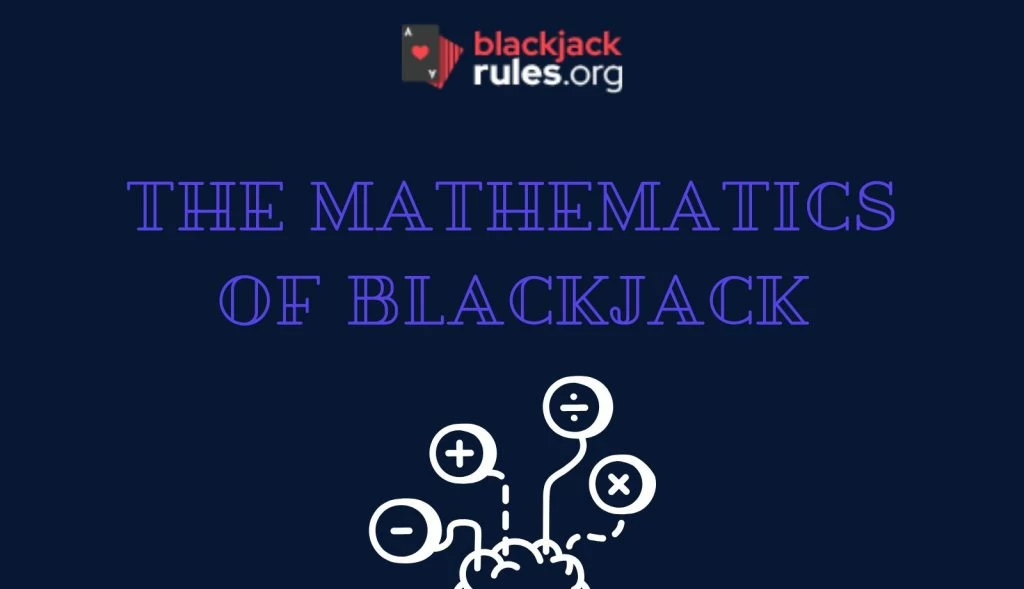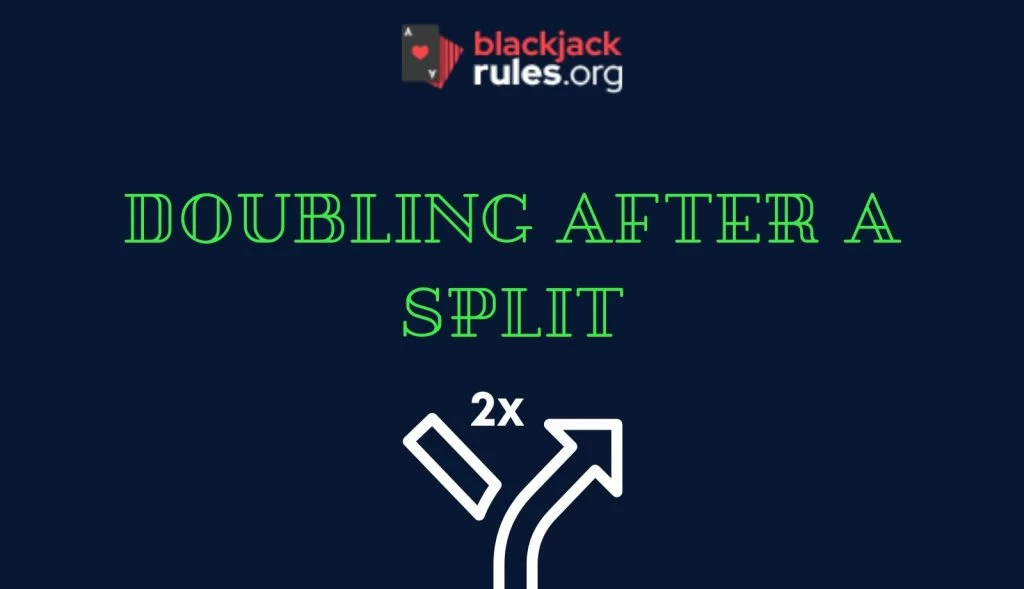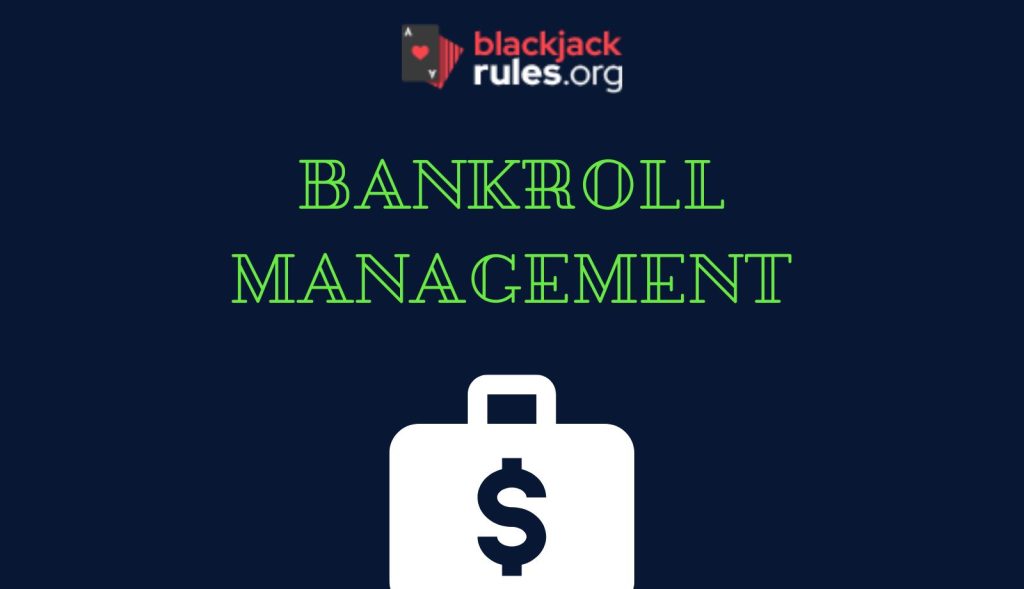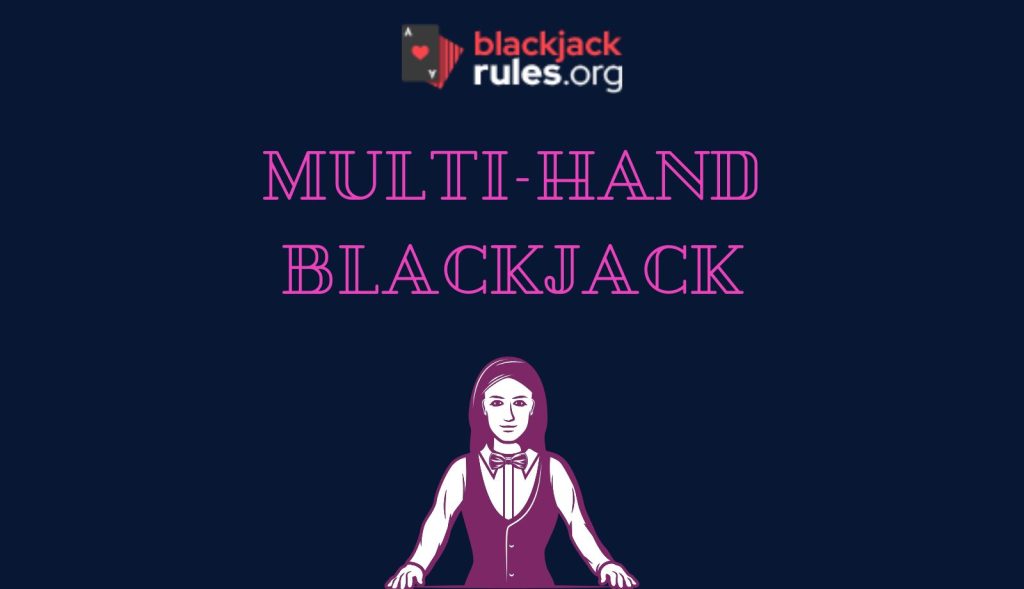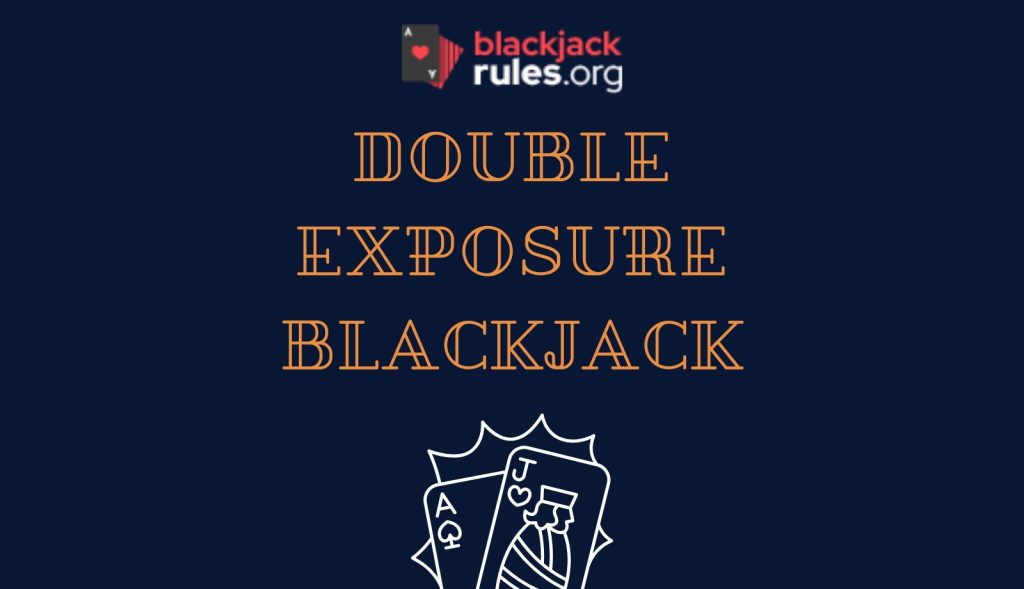Basic Rules of Blackjack
Blackjack rules, game variations, card charts, and a free simulator – your essential guide to mastering the game.
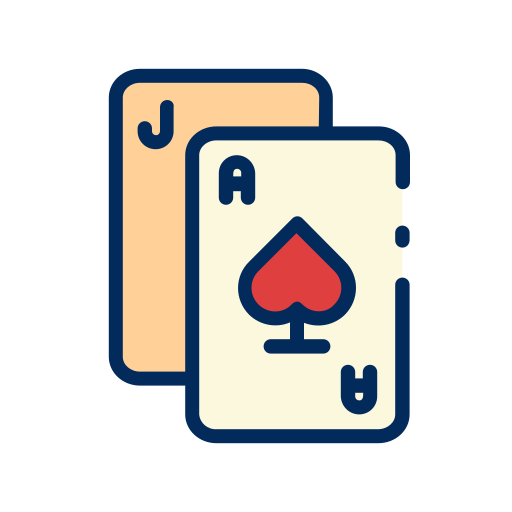
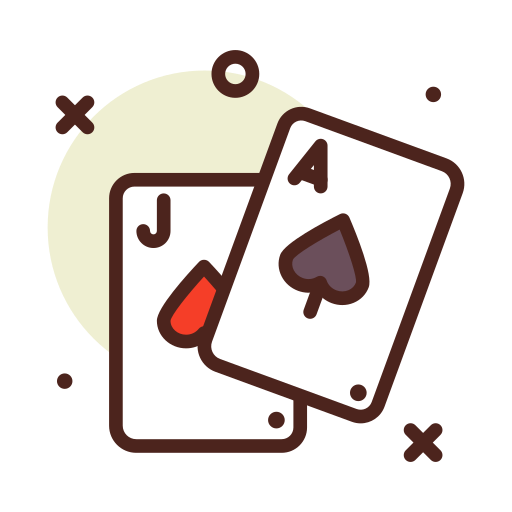
Learn the Rules

Decision Making

Winning Strategies
Aim of the Game
The goal of Blackjack is to beat the dealer by having a hand value closer to 21 without exceeding it.
Card Values
Number cards are worth their face value, face cards (Jack, Queen, King) are worth 10, and Aces can be worth 1 or 11.
Dealing
Players and the dealer are dealt two cards each. Players’ cards are usually dealt face up, while the dealer has one card face up and one face down.
Player's Turn
Players can choose to “hit” (take another card) or “stand” (keep their current hand). They can also choose to “double down” (double their bet and receive one more card) or “split” (if they have two cards of the same value, split them into two separate hands).
Dealer's Turn
The dealer must hit until their hand reaches 17 or higher.
Winning
If a player’s hand is closer to 21 than the dealer’s without going over, they win. If the player goes over 21, they bust and lose the round.
Blackjack, also known as 21, is a widely played casino card game. Players aim to beat the dealer by drawing cards that total as close to 21 as possible without going over. Card values are straightforward: numbered cards are worth their face value, face cards are valued at 10, and aces can be either 1 or 11. The player’s choices are vital, as they heavily influence the outcome. Effective strategy and knowledge of the rules are key to success. Typically, the game uses one to eight 52-card decks.
Check our guides
The Hidden Math Behind Every Blackjack Decision Every time you sit down at a blackjack table, you’re entering a world of pure mathematics. While it might feel like gambling, optimal blackjack play is actually applied probability theory in action. Understanding this math doesn’t just make you a better player – it transforms blackjack from a […]
Doubling after a split (“DAS”) lets you add an extra bet to a hand you’ve just split, in exchange for taking exactly one more card. Used correctly (per basic strategy), it’s a strong EV play; used at random, it can be costly. This article explains what DAS is, when to use it, and how to […]
Blackjack offers thrilling gameplay, but long-term enjoyment and success hinge not just on knowing the rules or basic strategy, but on disciplined bankroll management. This is the practice of managing the funds you set aside for playing, ensuring you can weather losing streaks, play responsibly, and maximize your time at the tables. Whether you’re a […]
For players seeking more action and faster gameplay, Multi-hand Blackjack offers an exciting twist. As the name suggests, this variant allows you to play multiple hands simultaneously against the dealer in a single round (just like in our free Blackjack simulator), amplifying the intensity and betting opportunities. While it might seem complex, Multi-hand Blackjack largely […]
Double Exposure Blackjack is a unique and exciting variation of the classic casino game. Unlike traditional Blackjack, where only one of the dealer’s initial cards is visible, this version exposes both dealer cards. While this may seem like a huge advantage for the player, several rule adjustments ensure that the house still maintains its edge. […]
How to Play the Game
- The game begins with each player placing a bet.
- Then, the dealer gives two cards to each player and two to themselves, with one dealer card usually facing up.
- The players then decide how to play their hands based on their cards and the dealer’s visible card.
Card Values and Hand Rankings
- Numbered cards (2-10) are worth their face value.
- Face cards (King, Queen, Jack) are worth 10.
- Aces can be worth 1 or 11, whichever is more favorable to the hand.
Dealer’s Rules
The dealer must hit (take another card) until their hand totals 17 or more. In some variations, the dealer must hit on a “soft 17” (a hand containing an ace valued as 11).
Player’s Options
- Hit: Take another card.
- Stand: Keep your current hand.
- Double Down: Double your bet and receive exactly one more card.
- Split: If your first two cards have the same value, you can split them into two separate hands.
- Surrender: Forfeit half your bet and end your participation in the hand (not always available).

How to Win the Game
-
Having a hand value closer to 21 than the dealer's without going over.
-
The dealer drawing cards until they exceed 21 ("busts").
-
Having a blackjack (an ace and a ten-value card) as the initial hand, typically paying 3:2.
Basic Strategy
Basic strategy offers the best decision (hit, stand, double down, split, or surrender) for any given hand, statistically increasing the chances of winning. It considers the player’s hand and the dealer’s upcard.

Try our Free Blackjack Simulator Game
Play hereHit
To “hit” means to request another card from the dealer. Players typically choose to hit when they believe that receiving another card will bring them closer to a total of 21 without going over. It’s a risk when your hand’s value is high, as there’s a chance of “busting,” or exceeding 21, which results in an immediate loss.
Stand
To “stand” is to keep your current hand and end your turn. This option is chosen when the player believes their hand is strong enough to beat the dealer’s or when there’s a high risk of busting if another card is drawn. Standing is often the best choice when the hand total is between 17 and 21.
Double Down
“Doubling down” allows the player to double their initial bet in exchange for receiving exactly one more card. After this, the player must stand. This move is best used when a player has a total of 9, 10, or 11 and the dealer’s upcard is weak (usually showing a 5 or 6). It’s a way to maximize winnings when the player is in a favorable position.
Split
If the player’s initial two cards are of the same value, they have the option to “split” them into two separate hands. This requires an additional bet equal to the original bet, essentially doubling the player’s stake in the game. Each hand is then played independently. Splitting is particularly strategic when dealing with pairs of Aces or 8s—Aces because it increases the chances of hitting 21 on one or both hands, and 8s because 16 is a weak hand, and splitting them offers a chance to improve.
Surrender
“Surrender” is an option in some blackjack variations that allows a player to give up half of their bet and end their turn without playing the hand. There are two types of surrender: “early” and “late.” Early surrender allows the player to surrender before the dealer checks for blackjack, while late surrender occurs after the dealer checks. This option is wise when the player has a weak hand, and the dealer has a strong upcard (such as an Ace or a 10), indicating a high likelihood of the dealer getting a strong hand.
Winning Tactics and Strategies
Betting Strategies
Betting systems like the Martingale, Fibonacci, and others offer structured approaches to adjusting bets based on previous outcomes. While they can’t overcome the house edge, they add discipline to betting patterns.
Tips for Playing the Game
- Always follow basic strategy.
- Avoid insurance bets.
- Manage your bankroll wisely.
- Practice regularly to sharpen your skills.
Game Varieties ♠️♦️♣️♥️
Blackjack Switch
Players receive two hands and have the option to switch the second cards dealt to each hand. This game features unique rules regarding dealer hands and payouts.
Blackjack Perfect Pairs
This variation offers an optional “perfect pairs” side bet, paying out if the player’s first two cards are a pair, with higher payouts for colored or perfect pairs.
American Blackjack
In American Blackjack, the dealer receives one face-up card and one face-down card (the “hole card”) at the deal’s start. They check the hole card for blackjack if the face-up card is an ace or ten-value card.
European Blackjack
European Blackjack typically uses two decks, and the dealer does not receive a hole card until after the players have made their decisions, affecting strategy decisions regarding splitting and doubling.
Vegas Strip Blackjack
A popular variant played on the Las Vegas Strip, this game usually uses four decks, and the dealer stands on soft 17. Players can double down on any two cards and after splitting.
Blackjack Rare Cases and Curios Facts
Big Blackjack Payoffs
Occasionally, casinos offer promotional blackjack payoffs, such as 2:1 for winning hands or bonuses for specific card combinations, leading to significant wins.
Unusual Hands and Outcomes
Blackjack has seen its share of rare hands and outcomes, including multiple aces split into several hands or winning with a 5-card “Charlie” (five cards under 21).
Interesting Facts About the Game
- Blackjack originated in French casinos around the 1700s as “vingt-et-un” (21).
- The term “blackjack” comes from a promotional payout for a hand of the ace of spades and a black jack.
Famous Blackjack Players
Historical figures, mathematicians, and professional gamblers have made their mark in blackjack, using skill, strategy, and sometimes controversial tactics to win big.
Responsible Gambling Alert
As you immerse yourself in the excitement of Blackjack, it’s crucial to remember the importance of responsible gambling. Blackjack, like all forms of gambling, should be approached with caution and responsibility to ensure it remains a source of entertainment and not a problem. Here are key guidelines to promote safe play:
- Set Limits: Before you play, decide on a budget. Stick to this amount to ensure you’re only gambling with money you can afford to lose.
- Know When to Stop: Winning streaks can turn quickly, and losses can accumulate. If you’ve reached your budget limit or feel any distress, it’s time to walk away.
- Educate Yourself: Understanding the rules, odds, and strategies of Blackjack can make the game more enjoyable and help you make informed decisions.
- Take Breaks: Regular breaks help you assess your situation and make rational decisions away from the excitement of the game.
- Avoid Chasing Losses: Trying to win back what you’ve lost usually leads to bigger losses. Accept the outcome and play another day.
- Use Tools and Resources: Many casinos offer tools to help you gamble responsibly, including self-exclusion, betting limits, and reality checks. Don’t hesitate to use them.
- Seek Support: If you or someone you know struggles with gambling, seek assistance from organizations like Gamblers Anonymous or other local support groups.
By adhering to these principles, you can enjoy Blackjack as a form of entertainment without risking your well-being.
Remember, gambling should be fun and not a way to make money!
❤️ Icons used on this page: https://www.flaticon.com/packs/casino-64
The information provided on this page is for informational purposes only. It is intended to offer a general overview of the game of Blackjack, including its rules, strategies, and variations, alongside promoting responsible gambling practices. This content is not designed as a comprehensive guide to gambling or as advice for gambling. Individuals choosing to engage in gambling activities should do so within the boundaries of the law and with a clear understanding of the risks involved, including the potential for loss and the development of gambling-related problems.
By accessing this information, you acknowledge that it is not intended to encourage gambling or participation in gambling activities. You agree that your decision to participate in gambling is made independently, recognizing the potential financial and social risks associated with gambling.
Play Responsibly. Play for Fun.
